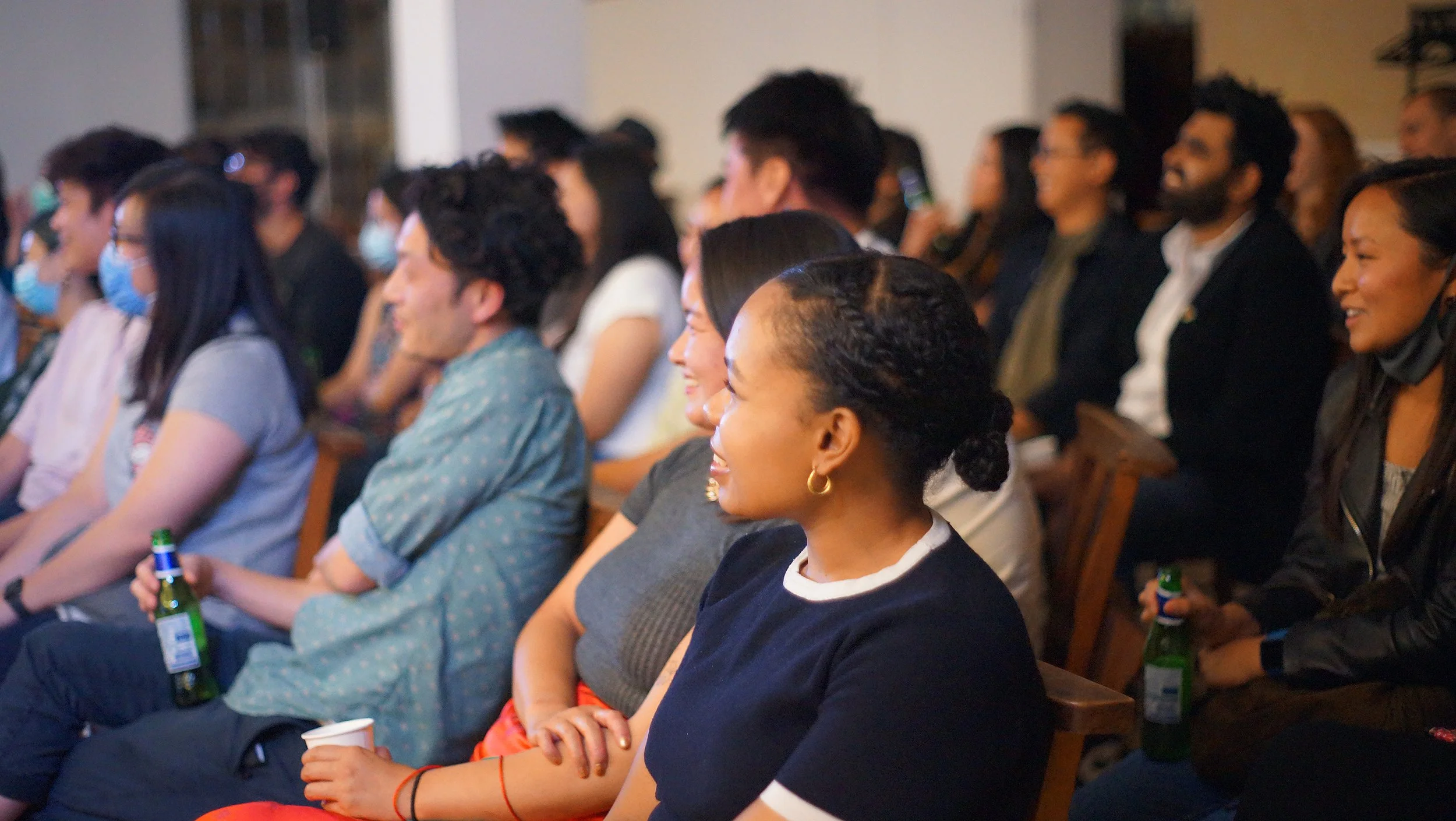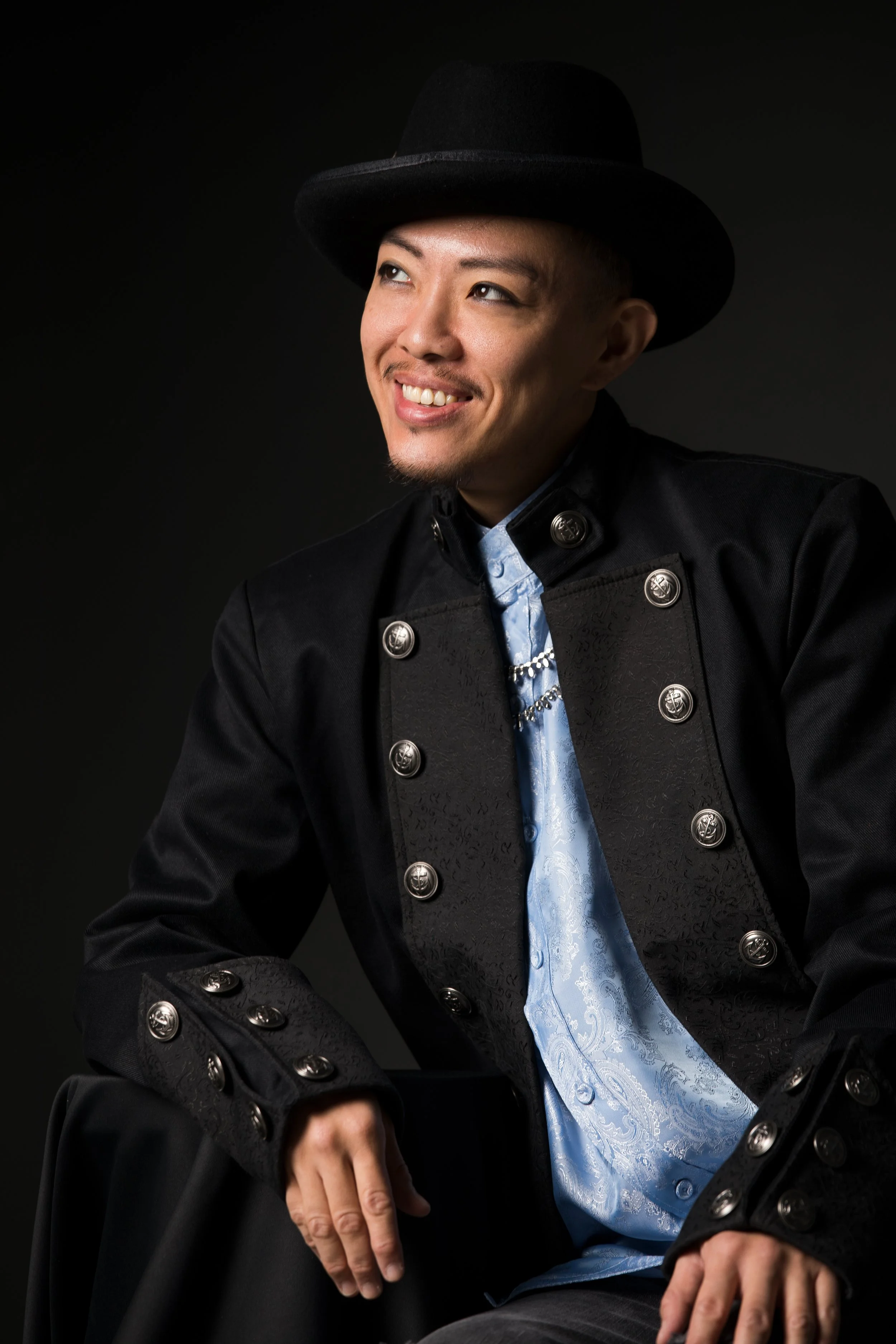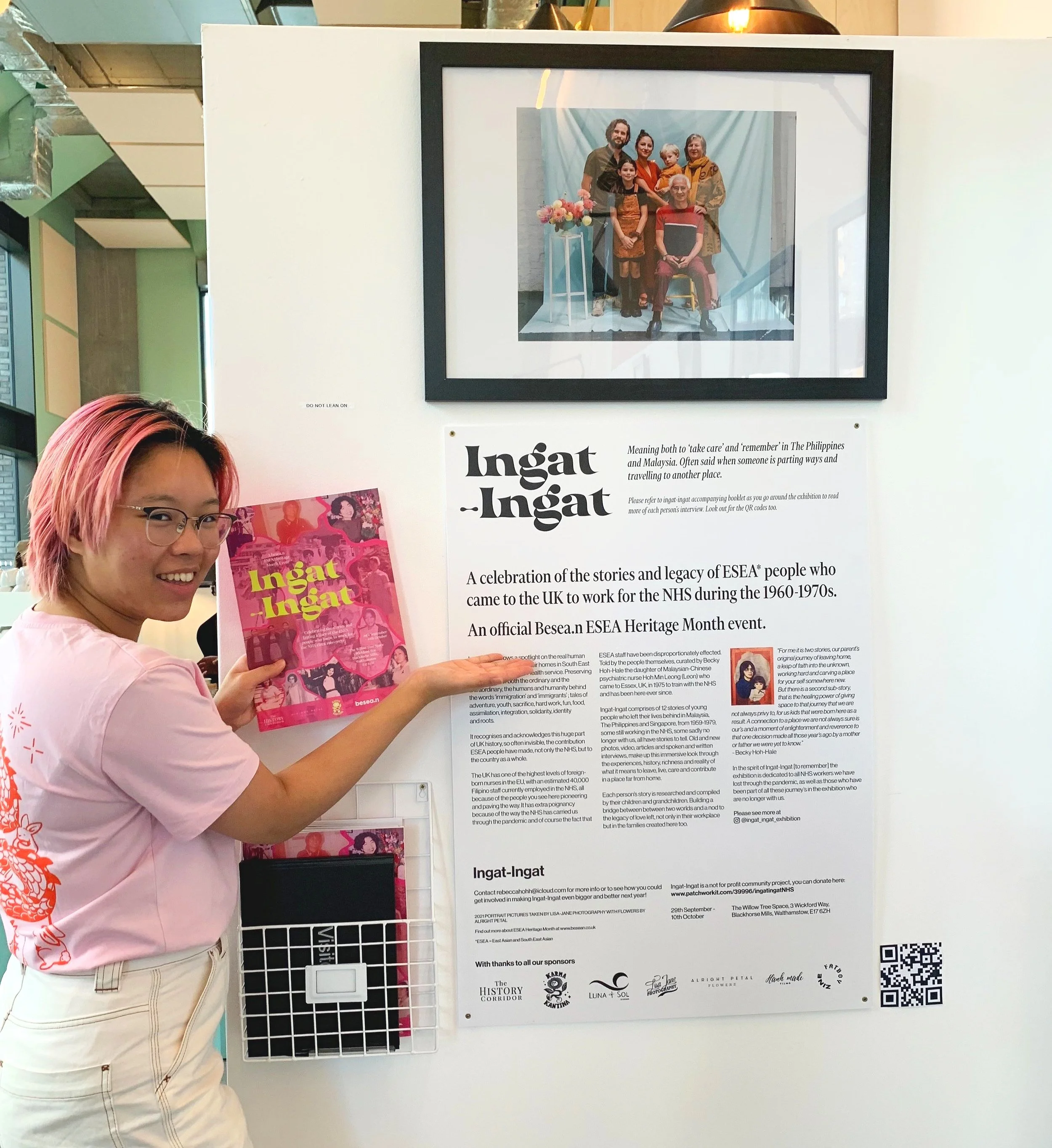Possibility models, new connections and held reflections: Looking back on ESEA Heritage Month 2021
By The Mollusc Dimension
Audience members at besea.n bash in China Exchange. Credit: Amy Phung
I'm Chinese, but growing up, I didn't see anyone on TV who looked like me. In the 1980s, I watched The Wonder Years and hoped I might be Italian! Until recently, I struggled to find other queer and trans ESEA (East and Southeast Asians), especially British-born.
Fast forward to September 2021, and it's the inaugural ESEA HM (East and Southeast Asian Heritage Month). A festival of abundant joy, (re)discovery, (re)connection and reflection for many ESEA and BESEA (British ESEA) people, including myself. Allies joining us for certain events reported gaining enjoyable insights.
At ‘Envisioning Queer East and Southeast Asian Heritage’, Hongwei Bao chaired a panel of six ESEA speakers: Qiu Bai, Jamie Chi, Victor Fan, Ge Liang, How Wee Ng and Yi Wang, who talked enthusiastically and seriously about creativity as practice. My lecturers, formative teachers and conference speakers were overwhelmingly white, so it was probably one of my favourite lectures ever; an unexpectedly moving experience for me.
Phil Wang performing at the besea.n bash. Credit: Amy Phung
At the "besea.n Birthday Bash" (my first large IRL social for over a year), I adored the welcoming committee, munched on cookies, admired Enxi's spoken word and chuckled at Ria Lina, Ken Cheng and Phil Wang. I fought the urge to heckle a few bits I found problematic. The evening was exuberant and it was delightful to finally meet most of besea.n and others in person.
Photo credit: Corinne
The next day, I hosted a launch for the song, Asians Have Feelings Too, written after my own brush with coronaracism and energised by #StopAsianHate. Participants aged 10-55+ from the UK to Australia attended, listened, and created artwork bearing the track's title in creative solidarity.
Land, Sea and Stars. Credit: Alicia Warner
The dreamily named "Land, Sea and Stars", was a magical use of multimedia, conveying the harsher/painful details of Vietnamese Hoa and Vietnamese Chinese people in Hong Kong with well-crafted sensitivity.
"Chinatown Stories" was a chance for me to take my mum (aged 73) on a rare trip to the centre. We heard many curious facts about the area from (Aunty) Hing before filling our bellies at a local Chinese restaurant. For several years, I had not spent this amount of time in Chinatown. It is a place studded with memories of food and family from childhood.”
It's been hard to articulate the disjunct I've felt when attending white-led and/or white-centric studies, e.g. literature, well-being and bodywork classes, while living in a marginalised POC body (albeit it one with erased historic connections to the topic). David Kam's "Stories of Our Heritage" decolonised mindfulness, hearing BESEA poets motivated me to write a few poems about my grandparents, while Keira May's movement and sharing session decolonised yoga.
Taking up space in nature, finding fellow resistors and allowing myself to rest are also aspects I find challenging. At the Launch of the ESEA Community Hub, I listened to Diana Yeh, Annie Jael Kwan, Youngsook Choi, Taey Iohe, Tam Hau-Yu and Jennifer Lim talk about community, plants and drawing as healing, and found myself sketching the faces of the speakers in a colourful forest.
besea.n co-founder Karlie Wu at Ingat-Ingat. Credit: Amy Phung
My mum and I also attended Ingat-Ingat, a photo, art and text project presenting the stories of immigrant NHS workers including (Aunty) Doris (another family friend). Before immersing ourselves in the show, we enjoyed pastries and hot drinks in the spacious architecture of the Willow cafe, returning home with a beautiful exhibition booklet.
Fitting in eight ESEA HM activities around work was no easy feat. I wish I could have attended more events! At this time, I was drawn particularly to events boldly signalling well-being and LGBTIQA+ inclusivity.
“In today's shocking media climate, I'm glad that besea.n is trans-inclusive. I hope to see more ESEA trans and intersex people included in stories, and also speaking and telling jokes.”
Although self-conscious doing so, I appeared more on Zoom and commented in the chat more than usual. Seeing diverse and engaging ESEA speakers made me feel more confident in numerous ways. I was excited and gently called to connect with the energy of others and with myself.
I felt welcome. I felt I belonged.
Born in 1980, The Mollusc Dimension (he/him) is a British-born Chinese, queer, trans masc, non binary artist. His decolonising project, "Asians Have Feelings Too" song and forthcoming music video and show calls for much-needed ESEA, Asian & LGBTIQA+ positive representation. His 16th zine, debut poetry collection "I just want you to know I exist" releases in 2021.
Follow him on:
https://twitter.com/mrgloomytunes
https://www.instagram.com/themolluscdimension/
https://www.facebook.com/themolluscdimension/
https://www.themolluscdimension.com





